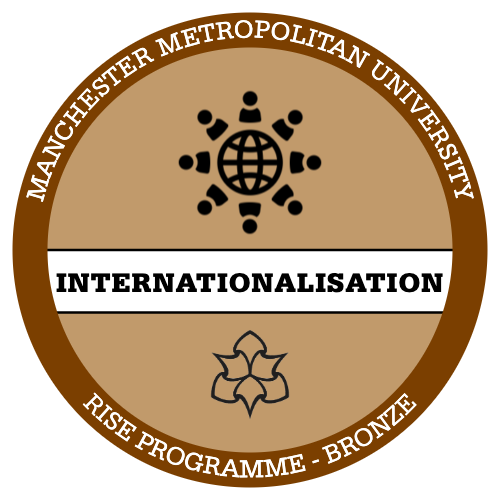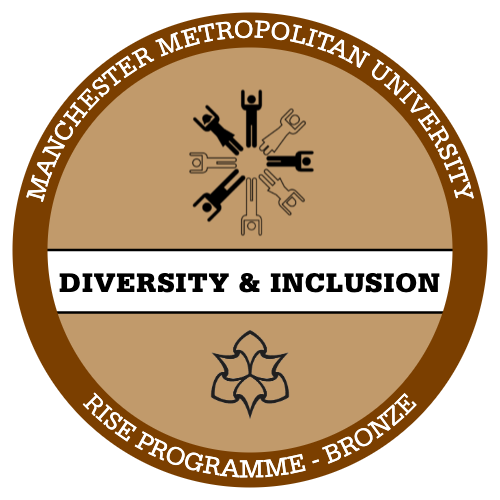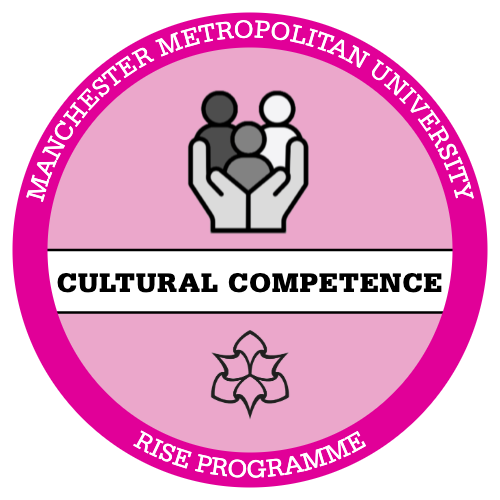 //REWORK THIS
//REWORK THIS
Becoming Culturally Competent
Manchester Met is proud of its diverse community of students and staff and aims to create an intentionally inclusive culture of belonging that promotes equity and celebrates diversity. This is a core part of the university’s Inclusive and Diverse Culture Strategy.
This resource is here less of a teaching tool and more of a space for you to explore who you are and how you connect with others. We live in a time of great consciousness of wonderful opportunities for global to local intercultural connectivity but are also bound in a history, and for some, a daily reality, that holds a lot of pain where cultural suppression or misunderstanding can leave us feeling alone or marginalised.
Becoming culturally competent as a term and concept can seem to imply that this is an attainable outcome, i.e. that, at some point, an individual can be considered ‘culturally competent’. However, in reality, the ability to understand the nuance of every culture everywhere, we can say with some confidence, is an impossibility. So why use ‘becoming’? Because saying that you want to ‘become’ something suggests an aspiration for learning, growth and change. It is a word that is about consciously evolving. It is not static. So we encourage you to embrace this aspiration – it’s a life-long challenge, but we hope you will agree, it is one well worth embracing.
Each and every member of our Manchester Met community plays a critical role in fostering a positive, inclusive environment. We invite you to think on how you are able to positively impact our community through your journey. This might lead to you making some big decisions or actions, small conscious changes in your thinking, or listen more intentionally to someone else’s story.
Whatever the size of your next steps, we encourage you to enter into this resource being honest with yourself about areas of potential growth and learning, and to do this in a spirit of curiosity, compassion, courage and openness.
Authors and contributors to this resource
Lewis and C-J have been very conscious of the positionality and lens they have had whist creating this resource and are grateful for the many students and staff who have added their input to ensure this resource has taken a large range of perspectives and cultural backgrounds into account.
Lewis Rimmer is an Equality, Diversity and Inclusion (EDI) Specialist working in the University’s central EDI Team. Lewis has been fortunate to work across multiple continents with various minoritised groups, throughout his career. He is passionate about growing and promoting community integration and inclusion by walking alongside others to create greater understanding and learning between community members.
C-J Foster is an Experiential Learning Specialist and the Internationalisation and EDI Innovation Lead with the Rise team at Manchester Met. Her work involves collaborating to create experiences of belonging and connection that celebrate our diversity and understanding of ourselves as learners in a multicultural community. As well as being an Australian living in the UK, C-J has lived and worked across four continents within the education and NGO sectors, focussing on the performing arts, cross cultural and interfaith communities, leadership training, youth participation and peace building.
With gratitude to staff and student contributors and reviewers: Mahzabeen Alam, Dr Gladson Chikwa, Lorna Colter, Hannah Edwards, Catherine Elkin, Ffion Evans, Anne Everett, Stuart Finnerty, Jac Fosset, Dr Josephine Gabi, Amraze Khan, Dr John Lean, Scott Levins, Caroline Lord, Ana Maia, Dr Gayatri Nambiar-Greenwood, Naheed Nazir, Dr Eileen Pollard, Rachael Rooke, Gabriela Santos Diaz, Dr Rachel O’Sullivan, Elle Simms, Nick Sutton and Dr Liz Warren.
This pack will take 1-2hours to complete and is worth 20 Rise Points upon completion.









